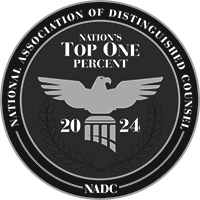- Joseph J. Hoffman, Jr.
- Kenneth A. DiMuzio, Sr.
- Ernest L. Alvino, Jr.
- Anooshay Asim
- Jeremiah J. Atkins
- Peter J. Bonfiglio III
- Vincent Campo
- James M. Carter
- Donald Caruthers, III
- John P. Ciocco
- Kenneth A. DiMuzio, Jr.
- Christine DiMuzio Sorochen
- Michael W. Glaze
- Leonard L. Grasso, Jr.
- Robert P. Grossman
- Joseph J. Hoffman, III
- Richard S. Hoffman, Jr.
- Ryan S. Hoffman
- Cristie R. Nastasi
- J. R. Powell
- Joseph J. Slachetka
- Charles J. Sprigman, Jr.
- James S. Taylor
- Robert J. Wiltsee
Your Legal Corner will discuss ” Back to school and student employment.”
This week I had the wonderful opportunity of hosting my daughter’s new roommates for a few days before the 2015/16 school year begins. The roommates all decided they wanted to visit where each of them grew up. So last month, they were in Chicago, than New Jersey and now they are off to see Long Island, the last of the three locations.
While driving and them talking excitedly in the backseat, I could not help but overhear how the other two roommates had accepted babysitting positions this semester for twenty dollars an hour!
This led me to think about the varied types of employment available for college students. Many colleges, like Rowan University, offer internship opportunities in addition to traditional employment. Personally, an hourly wage is but one consideration.
Should your student choose to work during the school year, there are other factors to consider. The main factor is whether the student is considered an employee or an intern. The answer will determine whether he or she is entitled to earn a wage for their labor.
Fair Labor Standards Act
The Fair Labor Standards Act (FLSA) is a federal law that imposes a minimum wage that employers must pay anyone defined as an “employee.” For college students, a determination must be made as to whether they are considered an employee.
Many colleges have work study programs with private companies offering students real work experience. For purposes of the FLSA, it does not matter whether the student is called an intern, assistant or trainee. Rather, a six-part test is utilized to determine whether the position requires payment of a wage under the FLSA.
U.S. Department of Labor Test
In determining whether a company must pay an intern, the following factors are considered:
- Training is similar to that which would be provided in class;
- Training is for the benefit of the student;
- Student does not displace a regular employee;
- Employer derives no immediate advantage from the activities of the student;
- Student is not guaranteed a job at the completion of the training period;
- Employer and student understand the student is not entitled to wages for time spent.
All six factors, taken together provide a logical format as to determining who is an employee and who is not. It must be noted that the training can include actual operations of the company. However, when the student is supervised in their activities, more weight will be given that this is a true internship and not require wages to be paid.
Public Sector Exception
It must be noted that the FLSA has an important exception to the application of the six-part test. Students who volunteer at a state or local government agency may be exempt from the minimum wage requirement. This exception is also applicable to non-profit charitable organizations such as churches or other civic groups.
So whatever position your student accepts…it’s good to know if they are an employee or an intern.
Till next time, God bless, keep smiling, when Your Legal Corner, will discuss “Student Internships and workers’ compensation.”
Victoria M. Dalton is an attorney with the law offices of Hoffman DiMuzio.
Send questions, or comments to Victoria at [email protected]. Or call 856-845-8243.
Please note that Your Legal Corner was created to provide educational articles about the law and is not legal advice.
Submitting this form does not create an attorney-client relationship, but a lawyer from our firm will contact you as soon as possible.


















